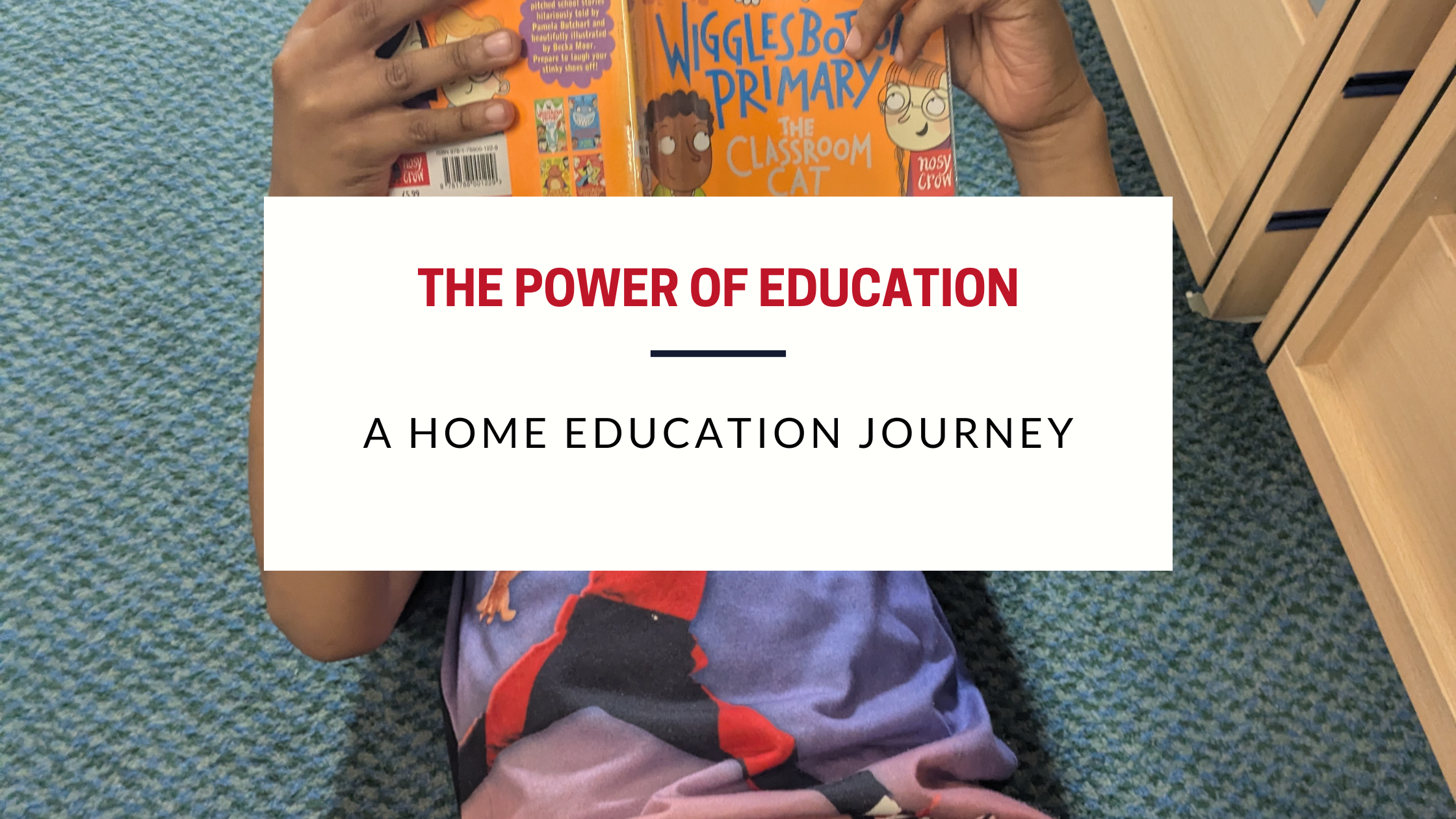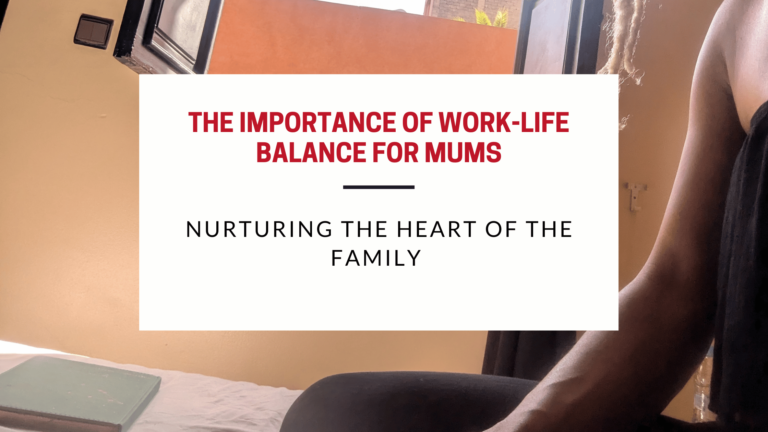The Power of Education – A Home-Education journey
Before I dive into a home education journey, let me provide some context on my background of education itself and how I value it. Learning starts in the womb, and as we progress from baby to child to adult, we are continually learning. Life is an educational journey.
From the time my first child, who is now 18, was young, I shared this quote from Nelson Mandela with him: “Education is the most powerful weapon which you can use to change the world.” I have always loved learning, and it is so important to instill in a child the value of education. However, it’s equally important to teach them to distinguish fact from fiction, conduct research, analyse the information they find, and form their own opinions about what they believe.
In a world overflowing with information, where so many claim to have the key to a particular result you might be seeking, it can become overwhelming to determine the right course of action.
When I was young, education was fundamental in my household. I attended traditional school during the week, Saturday school to strengthen my mathematical skills, and Sunday school for Biblical knowledge. The concept of anything outside this ideal seemed almost nonexistent.
Gifts in my family were often educational, like a dictionary from my late grandfather, which I was encouraged to use to learn one new word each day, or books from my mother that taught me about my culture or how to grow as a woman. I also received jigsaws, a globe, and binoculars – items many children today are no longer familiar with or aware of.
Looking back, I am better off for these moments and possessions, as they were tools for learning. They instilled in me a deep appreciation for the value, importance and power of education.
What is Home Education?
The definition of home education taken from the gov.uk website, is educating a child outside of the traditional school setting, typically at home, with the parent or guardian taking the primary role in teaching and learning.
The information further provided below by gov.uk, unedited states:
- You can teach your child at home, either full or part-time.
- That education should be provided in a safe environment, whether at school or at home.
- Parents have a right to educate their children at home, and the government wants the many parents who do it well to be supported.
- There should be an appropriate minimum standard which is aimed at, education should aim at enabling the child, when grown-up, to function as an independent citizen in the UK – and furthermore, beyond the community in which he or she was brought up, if that is the choice made in later life by the child.
My Past experience with Home Education
Home education wasn’t a decision I made lightly. I first tried it with my eldest during COVID, but it was a struggle.
Looking back, I realise this was because:
- He wasn’t motivated to learn at home.
- As a teenager, he already had his own way of thinking.
- I faced challenges I wasn’t prepared for.
- I hadn’t fully researched how to make it work.
- It just wasn’t the right time, given the state of the world.
Five years later, my approach is different:
- The benefits of home education now outweigh the disadvantages.
- I took the time to research and plan properly.
- My second child is naturally curious and eager to learn.
- He’s at an impressionable age, still discovering who he is.
- The timing feels right, based on my reflections on the past and hopes for the future.
Why did I start Home Education?
My child was experiencing several issues at school, both with staff and other children, that were deeply affecting him. I wasn’t willing to accept this, so I started looking into other schools while also researching home education as an alternative.
Exploring Other Schools
One day, I contacted at least 15 schools rated as “Good” by Ofsted, all within a six-mile radius, even though his current school was already five miles away. I visited a few of these schools, but they all had long waiting lists. Feeling stressed by the lack of quick solutions, I continued sending emails to his current school, expressing my concerns, but received no response.
Balancing Life as a Single Mother and Coach
As a coach, I help women rediscover their identity by owning their time with confidence, overcoming challenges, and building the confidence to fulfil their purpose. However, as a single mother with multiple children, I struggled to balance my own expectations with the time I had available. I felt like I wasn’t living the advice I gave my clients.
The daily routine of school runs – a full hour round trip each morning and afternoon – alongside my other responsibilities, just didn’t add up. I kept trying to accept my circumstances, but I couldn’t shake the feeling that there had to be a better way.
Seeking Clarity Through Faith
As a spiritual person with a strong belief in God, I had already been praying for signs that would bring me clarity. The final, unexpected sign came through a LinkedIn post I came across, which attached the PDF titled, “RAPE CULTURE STARTS IN PRIMARY SCHOOLS.”
This was the Everyone’s Invited primary school list 2025, containing 1,664 schools that were submitted anonymously unto their website by survivors of child-child sexual abuse during their time at primary school.
It had never crossed my mind that this could happen in primary schools, as someone passionate about prevention.
For school to have my child for the majority of the time and I unknowingly placing my child potentially in harms way, where something irreversible could happen, was the icing on the cake.
I’d like to refer to the few incidents at my child’s current school, including:
- Being Dismissed: He once reported being bitten by another child, only to have the teacher respond, “I don’t care.”
- Being Disbelieved: On another occasion, he tried to tell a staff member about something that had happened, and the response was to call him a liar.
When a child speaks up and is repeatedly ignored or dismissed, they may eventually stop speaking up altogether. I want my children to feel confident standing up for themselves, so I realised I needed to be more selective about the environments and situations I placed them in.
Taking the Leap
So, I chose to be obedient to what God was showing me. Despite the uncertainty of the future, my faith remained stronger than my fear. I then made the decision to start my home education journey.
The Final Confirmation
The final confirmation that I had made the right decision came just a day later. On Thursday, the Ofsted report for my child’s school was released. It rated the school as:
- Inadequate on three accounts
- Requires Improvement on one account
- Good on two accounts
My child had been fully deregistered and left the school the day before, on Wednesday.
I felt relieved, knowing I had avoided being part of the uproar that would follow, but I was also left unsure about the next steps on our new journey.
Starting the Home Education Journey
When I first transitioned my child from school to home education, I encouraged him to create a YouTube channel as a way to stay connected with his school friends. He made cards with his YouTube name on them, along with a description stating that he would be uploading new videos every Friday.
Research and Preparation
To prepare for this journey, I began by researching the requirements and guidelines for home education. I found valuable information on the following websites:
Socialisation
My primary concern was how my child would stay socially connected outside of school. Although he already attended activities three times a week, I knew this wouldn’t be enough.
To expand his social network, I:
- Joined home education groups on Facebook, which we dedicate 2 days to home education days with other home-educated children.
- Enrolled him in Cubs through Scouts – an organisation that helps young people develop life skills.
- Continued his swimming, dance, and church activities.
- Regular interactions with his siblings, cousins, my friends’ children, and the children who live on his nan’s cul-de-sac contributed to additional socialising with others.
Privacy and Community
It’s important to note that many of these Facebook groups are private communities. Acceptance into these groups typically requires verification that you have officially deregistered your child from mainstream education. This is also the case for accessing certain activities and discounts that are specifically available to home-educated families only, and not open to the general public.
My Goals for Home Education
When deciding on the right approach for home education, I chose a blend of structured curriculum elements with enough flexibility to encourage real-world connections and deeper understanding.
I was determined to include skills that I either lacked at a young age or had to develop later in life, as well as those I knew my child needed more encouragement in, such as:
- Financial literacy
- Time management
- Confidence
- Self-awareness
My aim is to create engaging learning experiences that not only cover academic subjects but also focus on developing essential life skills. I want him to grow into a stable, knowledgeable adult, capable of adapting to an ever-changing world and overcoming life’s challenges.
Positive Feedback
On car journeys my son will always be talking and airing his thoughts. He has made positive observations about how he’s finding the home education journey. One which stuck out to me came up in a random conversation he mentioned:
My son: My mum’s a great teacher.
Me: Oh? Why am I a great teacher?
My son: Because you don’t just let me play games. You’re serious about my education.
Conclusion
Every family’s choice to home educate is different, as is the journey they choose to take. I have documented the way it has worked for us. Each child adapts at their own pace, and factors like personality, intelligence, eagerness, and the speed at which they are able to learn also play a role. You’ll need to assess your own capabilities, commitments, and values before making the leap.
I’ve found it to be a deeply rewarding experience, allowing me to strengthen my relationship with my children. It has been a learning journey for us all, and we have found it truly beneficial. I love that I can spend more time with my children and improve our relationship daily.

